This post may contain affiliate links. Please read my privacy policy.
This lemon butter swai fish recipe is tender, flaky, and topped with a silky lemon butter sauce that’s bursting with flavor. You only need five ingredients and 20 minutes to make it, but it tastes like something you’d order at a fancy restaurant!
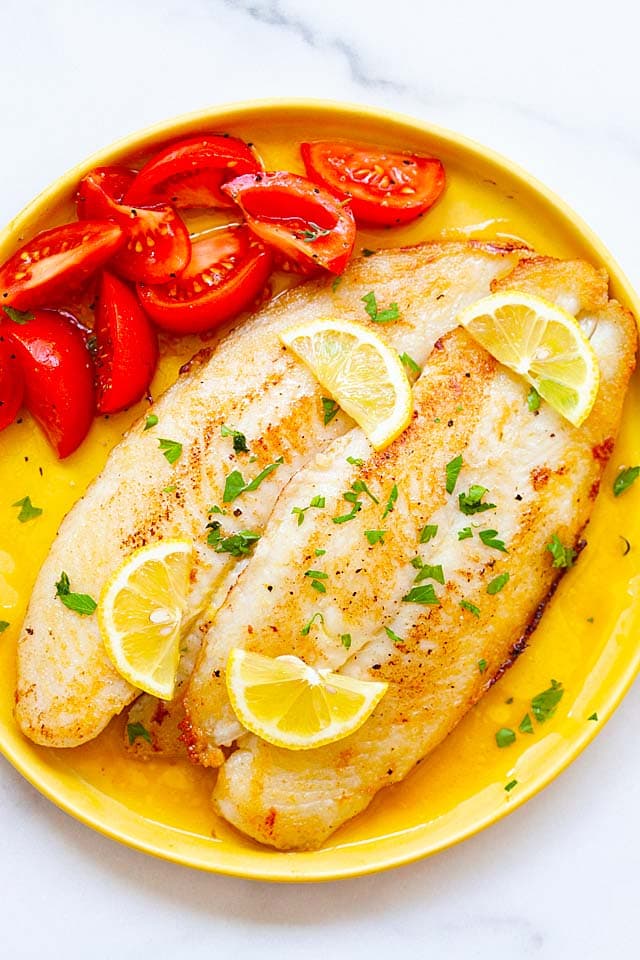
Quick And Easy Swai Fish Recipe
Swai is one of the most versatile fish I’ve cooked with—right up there with mild, flaky white fish like tilapia and cod. They share a similar texture and flavor, but swai is usually more budget-friendly and easier to find, which is always a win.
Now, let’s talk about this sauce. It’s rich, buttery, and silky, with a bright lemony kick and a splash of white wine that adds just the right touch of elegance. Honestly, it’s the kind of sauce I can’t get enough of—I just want to drizzle it over everything or soak it up with some warm, Homemade Garlic Bread! Don’t forget to check out my step-by-step video and tips and tricks below to get perfect results every time!
If you’re craving more lemon butter goodness, try my Lemon Butter Sauteed Scallops and Lemon Butter Chicken recipes next!
What Is Swai Fish
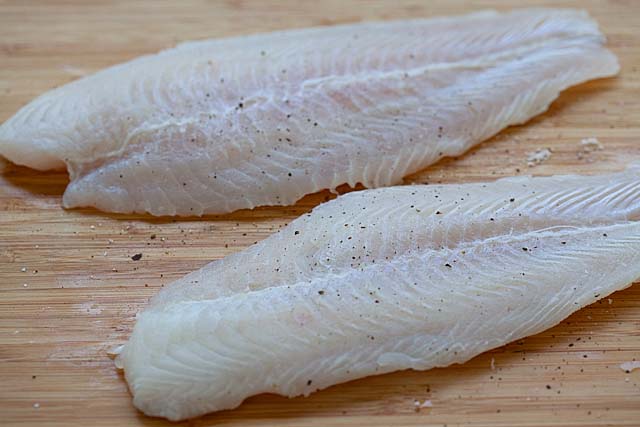
Swai is one of the most common white fish you’ll find in the United States. It’s a type of freshwater catfish native to the rivers of Southeast Asia, especially Vietnam.
In terms of flavor, it’s similar to other mild white fish like tilapia, cod, and sole. This pan-seared swai fish recipe is one of my favorite fish recipes, right up there with Baked Cod and Baked Tilapia.
What I love most about swai is how affordable it is compared to other popular fish. It’s a great choice for large families or anyone who wants to enjoy more seafood without breaking the bank.
Can’t find swai in the frozen seafood aisle? You might see it labeled as pangasius fillets, basa fish, river cobbler, or cream dory.
Ingredients You’ll Need
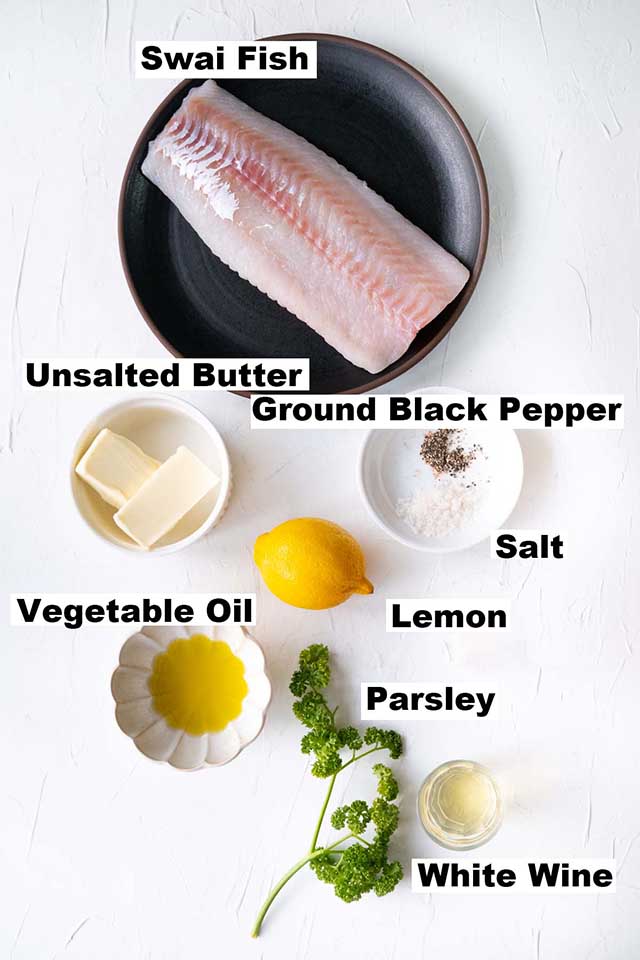
- Swai – look for swai fillets that are firm, white, and free of any discoloration or strong fishy odor. I like to use thinner fillets in my swai recipes as they soak up more flavor, but it’s perfectly fine to use thicker slices! You may also opt for other white fish such as sole, halibut, or cod.
- Butter – Make sure to use unsalted butter to have better salt control.
- White wine – Use dry white wines like Sauvignon Blanc, Chardonnay, and Pinot Grigio. Feel free to substitute with chicken broth if you don’t want to cook with alcohol.
- Lemon juice – Use freshly squeezed lemon juice as much as possible!
Please refer to the recipe card at the bottom of this post for full details on each ingredient.
Recipe Variations
- Extra crispy: For a crispy twist, bread the swai fillets by dredging them in flour, dipping in beaten eggs, and coating with breadcrumbs before frying.
- Baked swai: Want to keep it lighter? Bake the seasoned fillets at 400°F for about 10-12 minutes, then drizzle with some of that lemon butter sauce.
- Creamy sauce: For a creamy finish, stir in a splash of heavy cream into the sauce after you’ve removed it from the heat—just like I do in my Creamy Lemon Garlic Chicken recipe!
How To Make Lemon Butter Swai Fish
The best way to cook swai fillets is by pan-frying them in a skillet. A quick sear gives the fish a beautiful crust, and pairing its delicate flavor with a rich sauce like this lemon butter sauce turns any swai recipe into a restaurant-quality dish!
This healthy swai recipe is impressive enough for a date night in, but it’s also perfect for a quick weeknight meal. Like my other fish recipes, it comes together fast, so be sure to have everything ready before you fire up that stove.
Here’s how to cook swai fish in a skillet in just 20 minutes:
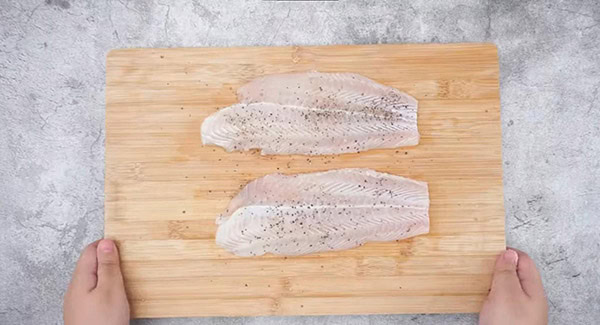
Rinse the swai fish fillets under cold water, then pat them dry with paper towels. Sprinkle a bit of salt and ground black pepper on both sides to season them.
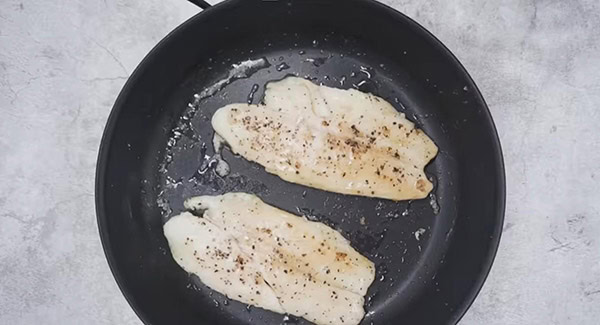
Heat a skillet over medium-high heat. Add a bit of vegetable oil and pan-fry the seasoned swai fillets for about 1-2 minutes on each side. Gently flip them over and cook the other side until they’re lightly browned and the edges are just starting to crisp up. Remove them from the skillet and place on a plate.
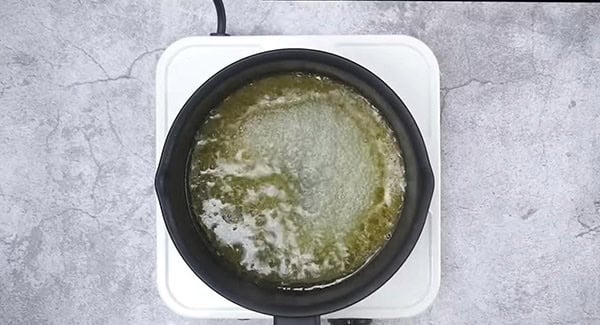
In a saucepan, heat the melted butter, then stir in the white wine, lemon juice, and a pinch of salt. As soon as the mixture starts to bubble, take it off the heat. Drizzle this delicious sauce over the fish, sprinkle with a bit of parsley, and serve right away!
Secrets To Perfectly Pan-Fried Swai Fish
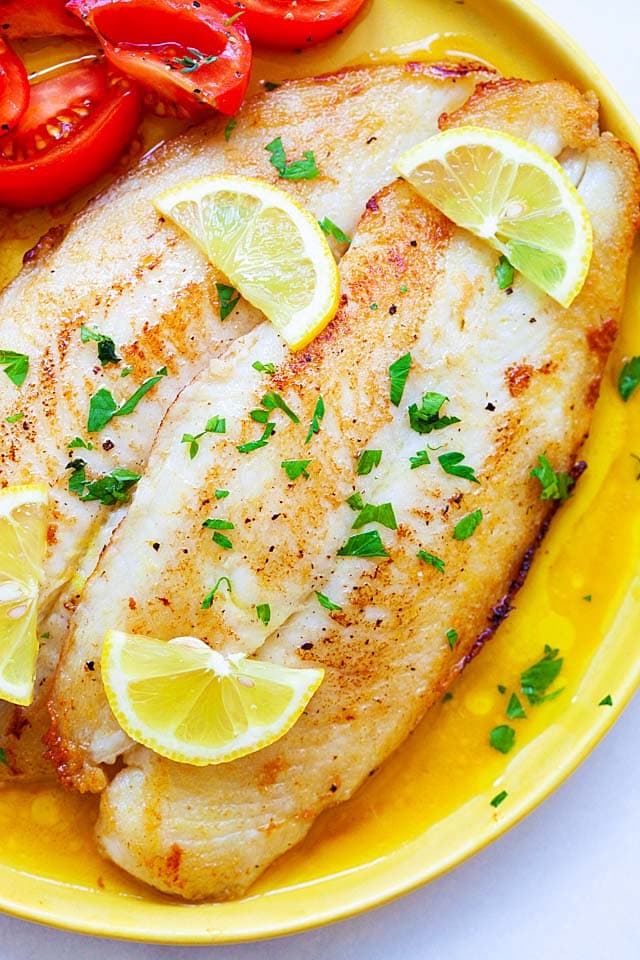
- I always use a non-stick pan or a well-seasoned cast iron skillet for pan-frying. It helps get that beautiful crust without the fish falling apart.
- If I’m using a cast iron skillet, I make sure the oil is nice and hot before adding the fillets. This keeps them from sticking to the pan.
- I also avoid overcrowding the pan when frying. Cooking in batches ensures the fish browns evenly and gets that perfect crispy texture.
- Since salt pulls moisture from the swai fillets, I make sure to pat them dry again before cooking. This way, they sear beautifully instead of steaming.
- Once the fillets are done, I let them rest for a minute or two before serving. This helps redistribute the juices, making every bite extra juicy.
- If I’m worried about the fish getting soggy, I serve the sauce on the side so everyone can add just the right amount.
Frequently Asked Questions
Like most white fish, swai fish is low in calories and fat but high in protein and essential nutrients like vitamin B12 and selenium. It is also a great source of heart-healthy omega-3 fatty acids.
Swai and tilapia are both mild-flavored white fish that you can use interchangeably in most fish recipes. Swai tends to have a slightly sweeter taste and softer texture than tilapia which is usually firmer and flakier.
Basa fish is a common nickname for swai, but they’re actually different. The flesh of basa fish is quite coarse and grainy compared to the tender flakiness of swai. If you’re in the US, though, most of the fish labeled “basa” is actually swai.
Swai fish is cheaper than other white fish because it grows faster and is easier to farm. It’s also in high demand, which helps to keep prices low.
To keep your fish from sticking, start by preheating your skillet on medium-high heat and giving it a good coating of oil or butter. Be sure to pat the fish dry to remove any moisture before cooking. Let it cook undisturbed for a minute or two until it forms a nice crispy edge. Don’t flip it too soon, or it might fall apart. And if you have one, a non-stick pan works wonders for delicate fish.
Yes, you can substitute white wine with white cooking wine, but keep in mind that cooking wine often contains added salt. You might want to adjust the amount of salt in your recipe to balance that out. The flavor will also be a bit different, as cooking wine tends to be more acidic and less fruity than regular white wine.
Yes, you can substitute white wine with white grape juice or lemon juice. White grape juice adds a subtle sweetness and mild acidity, while lemon juice gives an extra citrusy kick. Just be sure to adjust the balance to your taste.
Yes, the dish will still taste great without the white wine! The butter, lemon juice, and seasonings bring plenty of flavor on their own. If you’re skipping the wine, just add a little extra lemon juice to keep the sauce balanced and flavorful.
This swai fillet recipe has only 374 calories per serving.
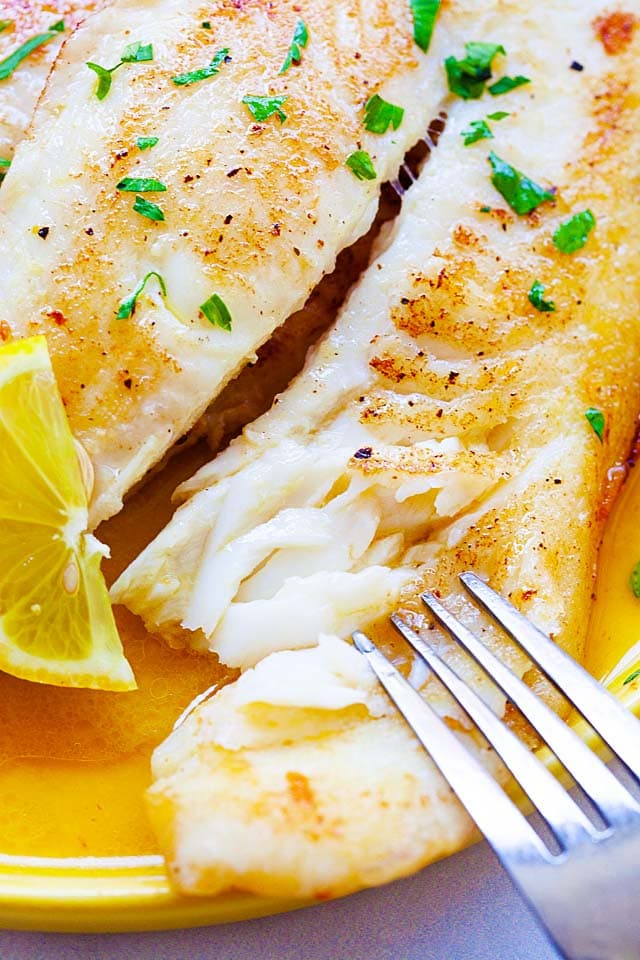
What To Serve With This Recipe
This lemon butter swai fish recipe is best served with white rice, Easy Spaghetti, or even Marinated Tomatoes. If you like to keep things light, pair it with your favorite salads or roasted veggies. For a seafood restaurant-style dinner at home, I recommend the following recipes:
I hope you enjoy this post as much as I do. If you try my recipe, please leave a comment and consider giving it a 5-star rating. For more easy and delicious recipes, explore my Recipe Index, and stay updated by subscribing to my newsletter and following me on Facebook, Pinterest, and Instagram for new updates.
Other Fish Recipes You Might Like
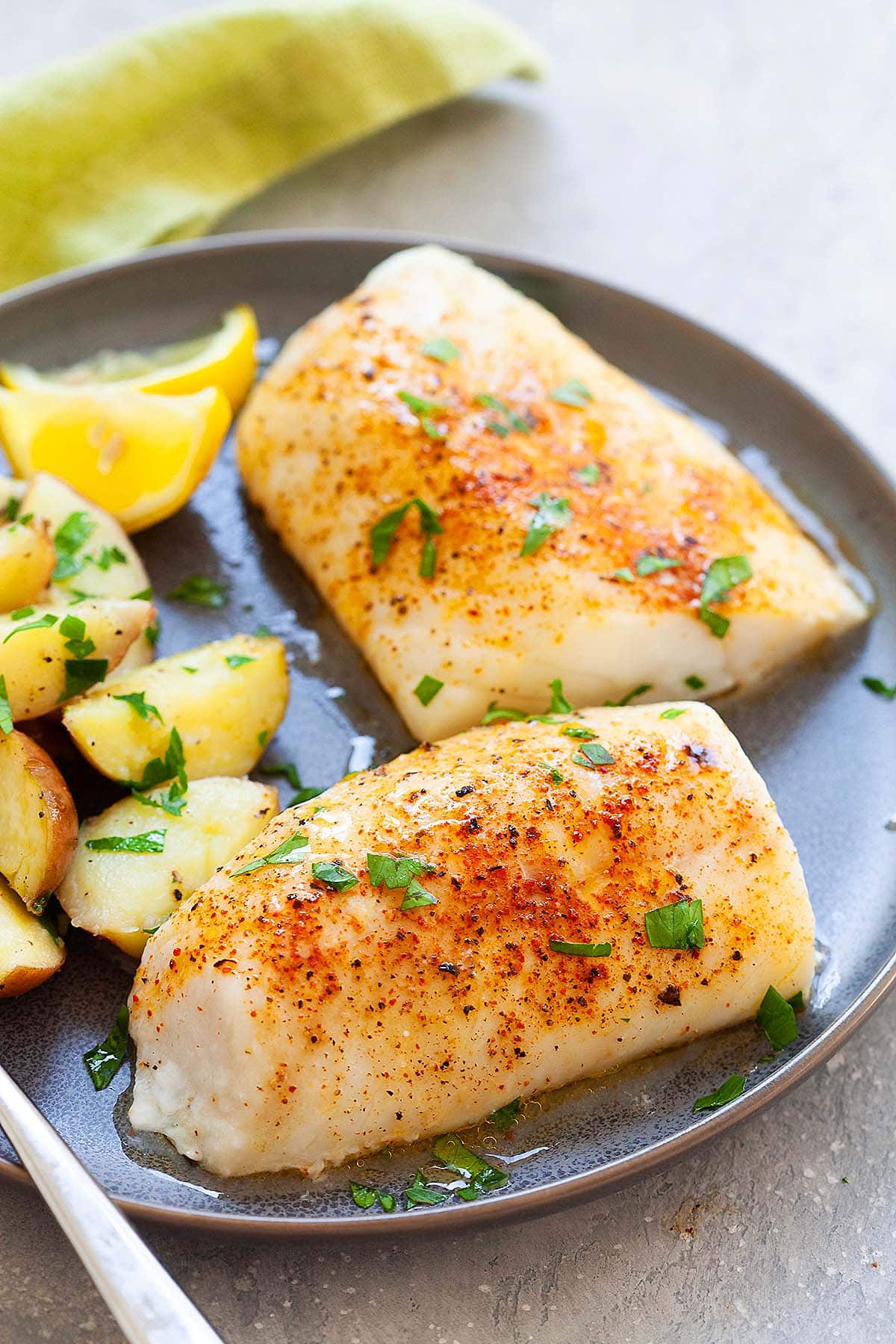
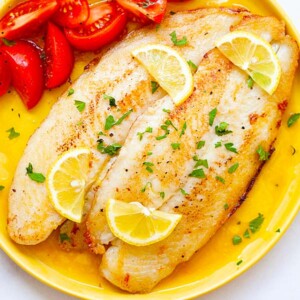
Lemon Butter Swai Fish
Ingredients
- 1 lb (500g) Swai fish , or Basa
- salt
- ground black pepper
- 1/2 tablespoon vegetable oil
- 2 tablespoons unsalted butter, melted
- 1/4 cup white wine
- 1 tablespoon lemon juice
- 1 pinch salt
- 1 teaspoon Italian parsley, chopped
Instructions
- Rinse the swai fish fillets with cold water and pat them dry with paper towels. Season both sides of the fish with salt and ground black pepper.
- Heat a skillet over medium-high heat. Add the vegetable oil and pan-fry the seasoned swai fillets for about 1–2 minutes on each side. Turn the fish over gently and pan-fry the other side until both sides are light brown with slightly crispy edges. Transfer to a plate.
- In a saucepan, heat the melted butter, then add the white wine, lemon juice, and a pinch of salt. Once the sauce bubbles, turn off the heat. Drizzle the sauce over the fish, garnish with parsley, and serve immediately.
Video
Notes
- I always use a non-stick pan or a well-seasoned cast iron skillet for pan-frying. It helps get that beautiful crust without the fish falling apart.
- If I’m using a cast iron skillet, I make sure the oil is nice and hot before adding the fillets. This keeps them from sticking to the pan.
- I also avoid overcrowding the pan when frying. Cooking in batches ensures the fish browns evenly and gets that perfect crispy texture.
- Since salt pulls moisture from the swai fillets, I make sure to pat them dry again before cooking. This way, they sear beautifully instead of steaming.
- Once the fillets are done, I let them rest for a minute or two before serving. This helps redistribute the juices, making every bite extra juicy.
- If I’m worried about the fish getting soggy, I serve the sauce on the side so everyone can add just the right amount.
Nutrition
Nutrition information is automatically calculated, so should only be used as an approximation.
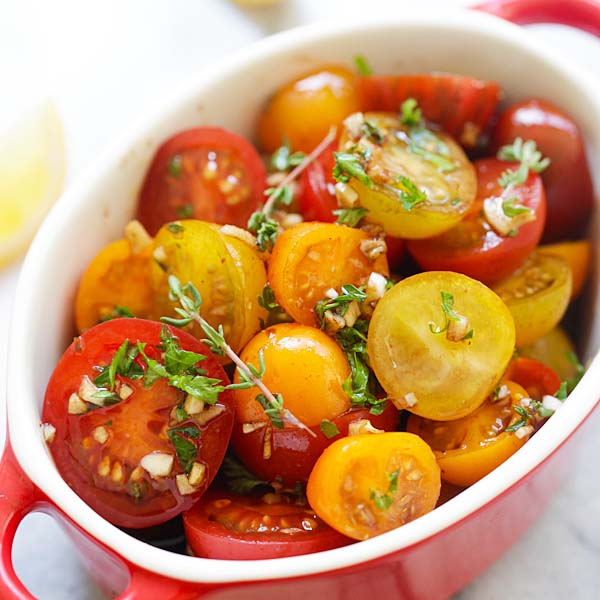
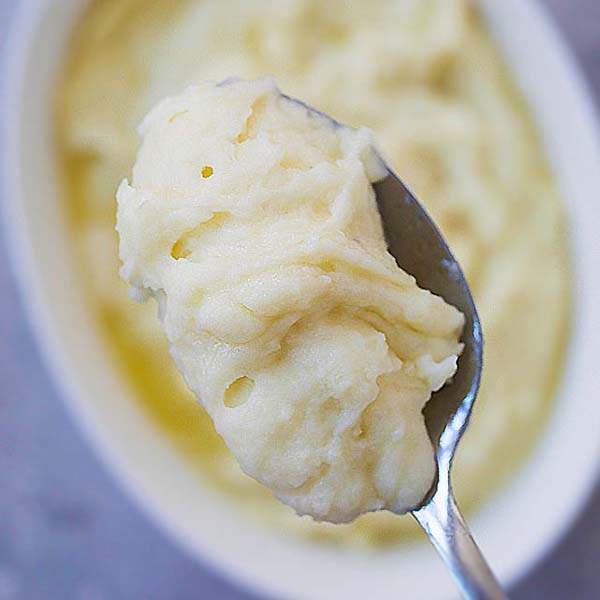
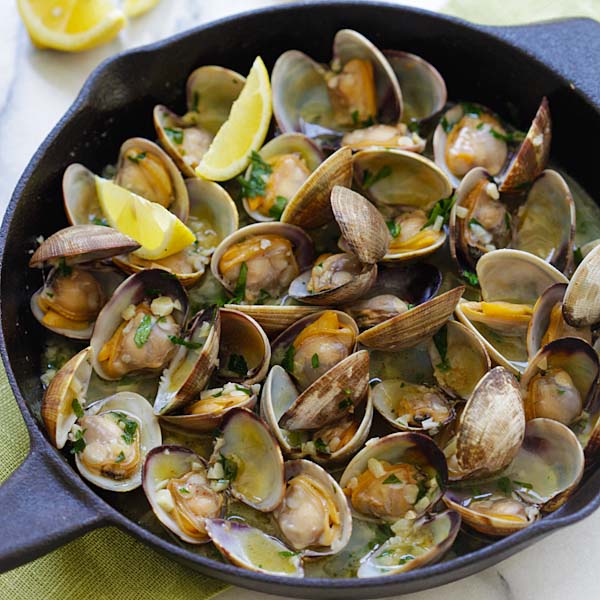
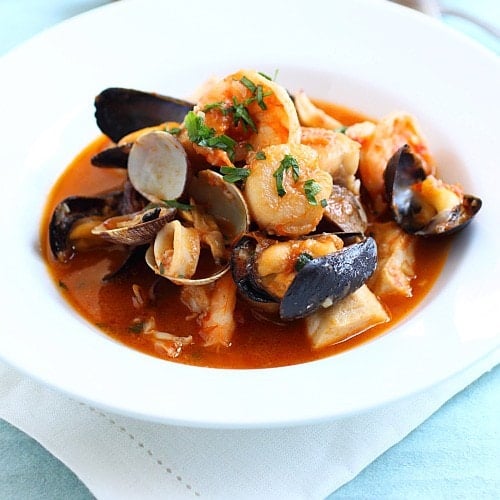






Can I substitute white wine with white cooking wine? Or will it change the taste?
Sure it works.
NO. Most cooking wine is heavily salted and the resulting dish would be too salty. NEVER USE “COOKING WINE” as it is the cheapest wine, with salt added. Do NOT cook with wine that you would not drink!
Omg, thus was amazing. One of my new favorite swai recipies.
Thanks.
Tasted amazing
Thank you!
So simple. So delightful. Thank you!
That was delicious and there were 2 beautiful clean plates at the end of the meal!! Will be making that again definitely.
Awesome thanks for trying my recipe: https://rasamalaysia.com/recipe-index-gallery/
Great quick recipe. Easy and very clear instructions.
Thank you!!!
Hi Miguel, awesome and thanks for trying my recipe. Please try more recipes on my site: https://rasamalaysia.com/recipe-index-gallery/
Does it still taste good without the white wine? I’m out and trying to use what I have on hand.
Yes it’s fine.
Can you use grapefruit juice?. That’s all I have.
I think you can try but lemon is the best.
this fish used in recipe is an endangered species…
Hi Denise, Swai fish is not endangered. They are mostly farmed.
If you reduce the wine and lemon juice, then swirl in the butter your sauce will be thicker and creamier!
Good idea!
Taste the sauce as it cooks. A particularly tart white wine plus the lemon juice turned out too tart but a tablespoon of mirin (Japanese sweetened wine) made it perfect.